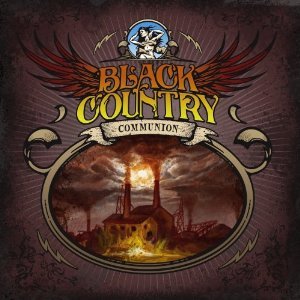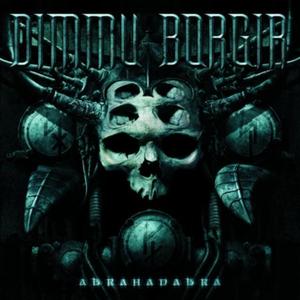"Black Country Communion" (JR Adventures)
I could have ordered this rock soupergroup from a menu, it's so right. Under producer Kevin Shirley's rough hands, Black Country Communion gather a sound and a feel that could've been stacked & waxed in the early '70s (although singer-bassist Glenn Hughes is the only member old enough to have received that particular baptism).
Always a steam engine, Hughes (Deep Purple, Trapeze) has hurled himself into this project as if his very soul depended on it. Drummer Jason Bonham has virtually merged limb & spirit with his late Zeppelinian father. Joe Bonamassa carries the blues torch as a rule, but here he worships at the hard-rock altar, and he's got the vintage guitar gear to get his prayer heard. In the midst of all this history, keyboardist Derek Sherinian (Yngwie Malmsteen, Alice Cooper, Planet X) displays his brilliance in the rarest way: by NOT showing off. So: In the latter-day supergroup sweepstakes, Black Country Communion beats Chickenfoot by a beak and Dem Crooked Vultures by six wingspans.
If you consider the first half of these 72 minutes as one album, it can take on any competition in the specialized league of bluesy English heft. Yes, even the godhead predecessors: No Led Zeppelin, Free or Thin Lizzy record can match "Black Country Communion" (part 1) for bang-bang consistency. "Black Country" kickstarts the motor with an "Immigrant Song"-style peel-out. As the band lays down a deadly groove on "One Last Soul," Hughes' catapulting cry makes us sweat for redemption. He's also got our back on "The Great Divide," pushing us toward the peak with a driving bass and the wailing testimony about the beauty to be glimpsed on the other side. Transcendent stuff.
The second half, studded with an apt revisitation of the greasy-clonking Trapeze classic "Medusa," is only great. Monster riffs abound, but BCC mainly wants to open things up into spacious valleys where thoughts can rise and disperse like curls of smoke. I know Hughes is sober these days, but oh yeah.
"Black Country Communion" lays down some dogma in the matter of Bonamassa's rep. Not only can the man bluesify and shred, he's all the time pulling back and telling deft little string stories; his creative obbligato riffs hit the pocket right where they oughta, too. Along with Bonham's sumptuous trashcan kit, Bonamassa's range of colors enhances the record's dark-toned post-peace feel: the reckless cut of Jimmy Page, the strange brew of Eric Clapton's neck-pickup howl, the gnarly wah of Stan Webb, the unabashed choice of primitive spring tremolo. He even dusted off the primordial 1968 Les Paul of Mel Galley, the Trapeze guitarist who died in 2008.
As for Sherinian, you wouldn't miss his keyboards unless you mixed them out, and then you'd miss 'em a lot; his translucent backdrops and subtle chord inversions constitute the very essence of atmosphere.
Wonderful as all this is, the larceny factor must be taken into account. Or hey, let's call it tribute. A short list of near-direct thefts: the Zep "Kashmir" keys of "No Time," the flowery Cream "White Room" vocal bit in "Stand (At the Burning Tree)," the AC/DC "For Those About To Rock" counterpoint chorus chords of "Sista Jane," the Humble Pie "Live With Me" soul organ jam of "Too Late for the Sun." With Bonamassa executing a most creditable Windy City vocal up front, BCC sets some kind of record on "Song of Yesterday" by stealing not only Led Zeppelin's "No Quarter" riff, the Faces' "I'm Losing You" rave-up and Free's "Heavy Load" verse groove, but even Free's title.
In music, of course, it's not about whether you steal, but how well -- so Black Country Communion have proved themselves princes of thieves. They've made a record we can rock to for the rest of our lives, and they've done it with pure heart. Reminds me of when I saw Bob Dylan do "Brown Sugar": Glenn Hughes knows that when an artist gets to a certain age, he's not just representing himself; he's REPRESENTING.
Dimmu Borgir, "Abrahadabra" (Nuclear Blast)
They damnwell did it! Gotta confess to some apprehension in the wake of Dimmu Borgir's evictions last year: The Norwegian black-metal institution deinstitutionalized bassist-cleanvoxman Vortex and keyboardist Mustis, each of whom played a specialized role in broadswording the unit's arsenal. Never fear -- bellower Shagrath and guitarists Silenoz & Galder simply stuffed the entire Norwegian Radio Orchestra into the gap and burped up the most symphonic and ear-tingling record of DB's 17-year career.
Dimmu Borgir have gone orchestral quite a bit before, often employing keyboard samples; thus they've raised mighty gushes aplenty. This time, though, a special black star goes to Berklee grad Gaute Storås, who arranged the strings and choir: Where most rock orchestras ooze and blur, this one punches in with dynamic accents, swelling only when the moment and the rhythm are right. I've never heard it done so tastefully.
Ow, retract the boot, I didn't mean that as a poodown! But dem carpy black-metal purists will continue to find Dimmu Borgir far too professional; nobody's gonna think "Abrahadabra" was recorded by some lone steeple-igniter in his dank basement. (And enlisting Ulver's black-metal apostate Garm to sing on the last track can only be viewed as rubbing it in.)
From the Tuvan groans at the beginning to the flesh-gnawing slobber at the end, and with all the anvils, kettle drums and Viking ghost choruses in between, DB have spared no exotica to make "Abrahadabra" a constantly changing yet brutishly rocking ride. The writing clicks throughout, but it was a smart strategy to preview the album with a video of "Gateways," which claims not only the best hooks but a standout guest performance from Agnete Kjølsrud, whose semimelodic witch howls crank the passion up to the level of pyre agony -- shades of Diamanda Galas. Gotta love the way the acoustic-guitar arpeggios successfully compete with church bells and Armageddon stampedes on "Ritualist." And when are Dimmu Borgir gonna release an entire album of magnificent wordless instrumental introductions like "Xibir"? A great tradition.
More: Nobody mixes modern metal like the ubiquitous Andy Sneap. And hardly anybody thrums the double-kick like drummer Daray. This is teamwork.
"Abrahadabra" stands as one of the most uplifting ways to sublimate your violent urges -- which, of course, is largely what heavy metal is for. I was feeling especially hostile the Sunday I took notes on this, so I watched the Packers bust the tube at the same time. And nothing in the Lodge got banged 'cept my head.


